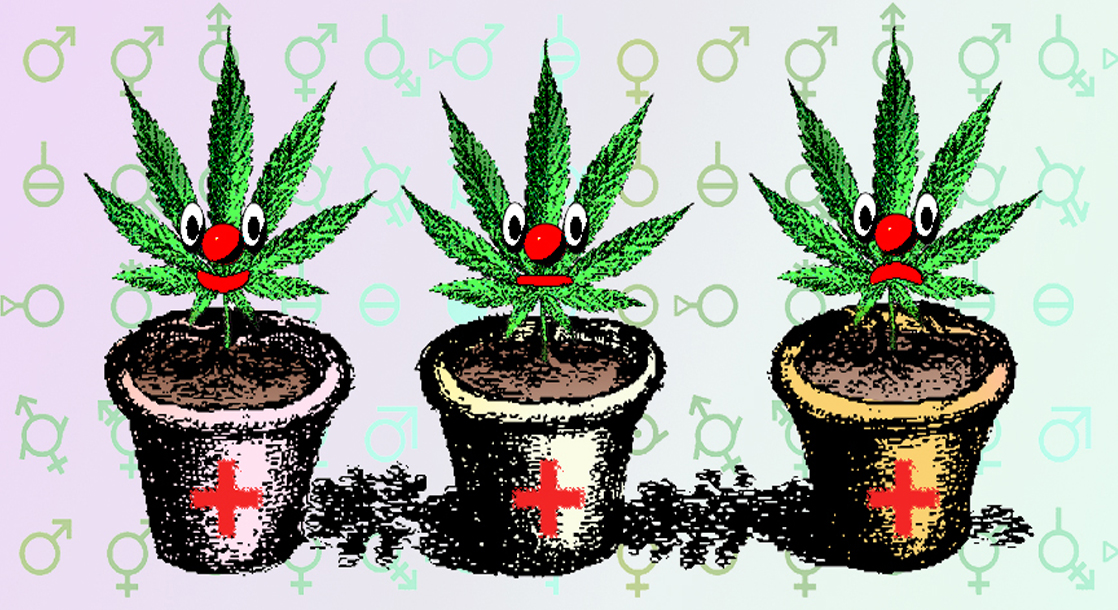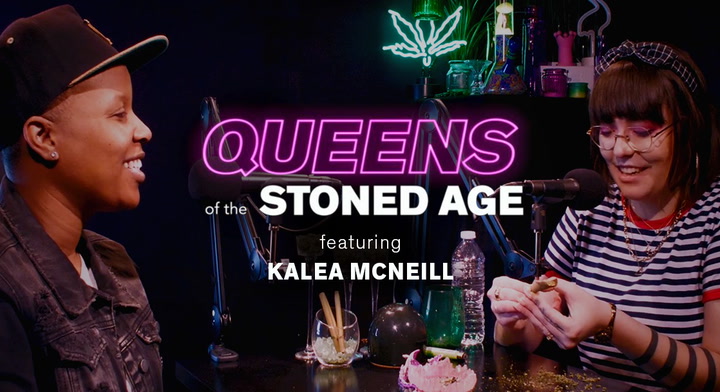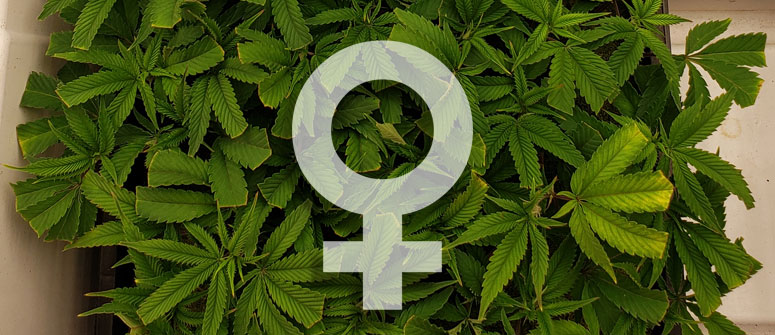Illustrations by Adrienne Kammerer
“I used to smoke weed a lot, especially in the early days of coming out. I think, in a lot of ways, I used it to mitigate my gender dysphoria and get out of my head and my body.”
Camilo is 20-years-old. They are a two-spirit disabled person living on the West Coast. Cannabis was their crutch, offering them a way of dissociating from some of the more painful parts of dysphoria and the harsh daily realities of racism. And it worked, up to a point. But as Camilo continued in their transition, things started to change. According to them, after about four months on testosterone, the same cannabis that they had once considered as a vital resource became a spark for severe discomfort.
“Something in my brain chemistry suddenly changed, and instead of alleviating my pain, weed made it worse,” they told me in an interview. “I was using pot for my chronic pain and anxiety because it numbed the pain and made me dissociate more. But suddenly, smoking weed was making me extremely hyper-aware of my body — it was highlighting my pain, and making me unable to escape it. So I stopped smoking, and I haven't bought weed in over a year.”
Transgender people don't all experience dysphoria in the same way, but most speak to a sense of anxiety associated with being mis-recognized and over-scrutinized based on their gender presentation. For many people, cannabis is a useful tool in addressing these anxious symptoms. But it can just as easily go the other way.
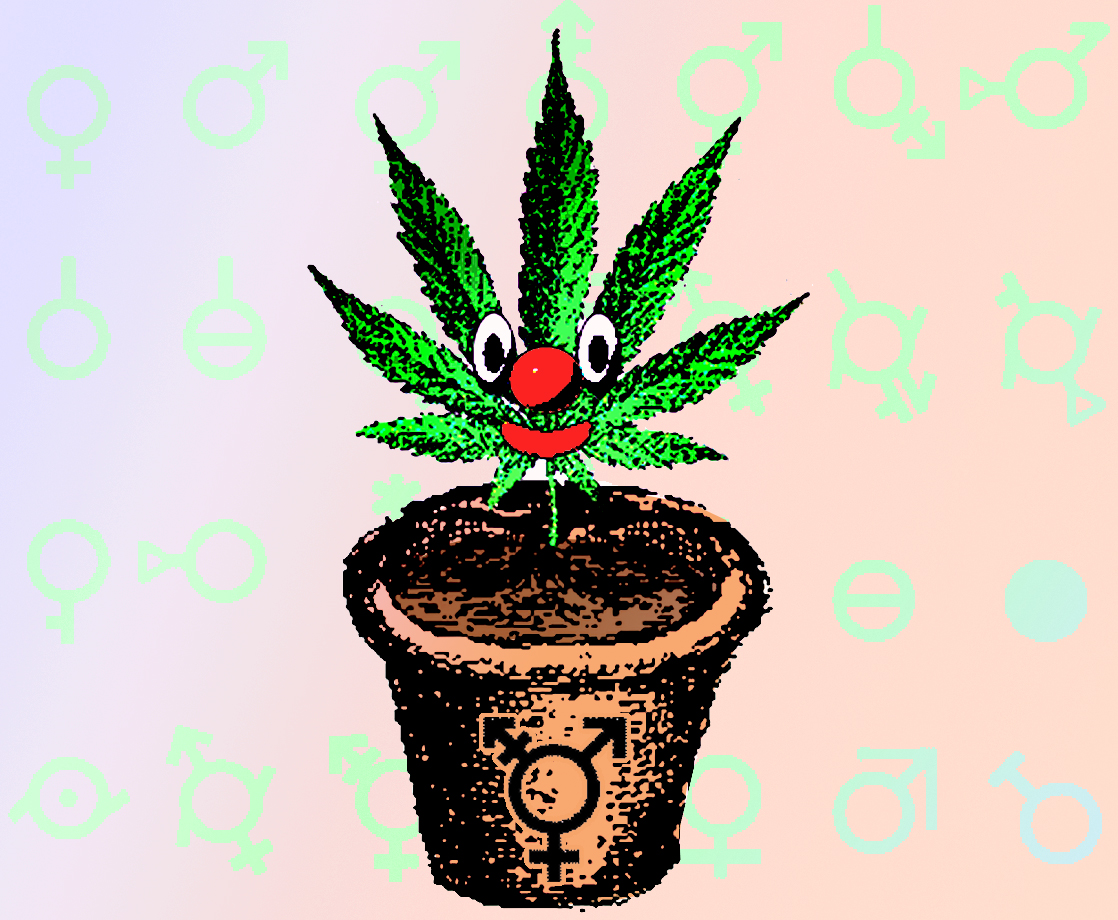
Understanding the Chemistry
It’s not unusual for one’s relationship to substances to change over the course of their medical transition. A lot of this change comes from internalizing external forces, but it’s not as though there isn’t a chemical component, too. After all, if you’re introducing a new dominant hormone into your endocrine system, it’s going to cause some ups and downs, especially in the early stages of one’s hormone replacement therapy (HRT) regimen at the beginning of that internal rebalancing.
Based on the conversations and interviews I've had with other trans people for this article and elsewhere, the consensus seems to be that over-emphasizing the power of hormones to do things other than what hormones are chemically made to do is a stretch. I’ve heard estrogen described as “slow-release sadness,” which is a great turn of phrase, but feels disconnected from the feelings of confidence and rightness that same hormone triggers in me. Personally, I find that I get drunk less easily than when I started hormones, but I doubt that’s due to the estrogen, so much as the fact that I feel less pressure to drink in excess than I did before. Having estrogen in my system makes me feel more grounded in my body, and less sensitive to social pressures. So while we can reasonably assign some power to the hormones themselves, I’m hesitant to give them too much credit for their ability to change people’s relationships with intoxicants.
I brought this up to Dr. Rebecca Craft, a psychologist researching cannabis and the endocrine system at Washington State University. She's been studying how cannabinoids are affected by hormones, and her research so far has focused on THC and the endocrine system of rats.
“Several pieces of evidence point to estrogens — estradiol in particular, which is the major estrogenic hormone in both rats and humans — as the hormone that makes females more sensitive than males to some effects of THC,” said Dr. Craft in email interview.

Dr. Craft and her team have determined that one of the mechanisms underlying the hormone’s effect is estradiol’s modulation of the liver enzymes that break down THC into its major metabolites. “One of these metabolites is what we call an ‘active metabolite,’ 11-OH-THC, or eleven-hydroxy-THC,” explained Dr. Craft. “This metabolite acts exactly the same way that THC does — it binds to the same receptors and produces the same effects as THC. Female rats make a lot more 11-OH-THC than males do, and estradiol is responsible for that metabolic sex difference.”
She’s found that female rats at the height of ovulation (and thus, at maximum estradiol production) are most sensitive to THC’s pain-relieving effects. When she removed the testes from male rats and then treated them with estradiol, their sensitivity to THC’s pain-relieving effects started to resemble that of females. But this same trend doesn't apply for all effects of THC. In the case of sedation — that side-effect of THC that inclines users towards sleepy placidity, often found in indica-dominant strains — estradiol has no impact; rather, males with higher testosterone levels are more affected, suggesting that testosterone is the important hormone modulator.
These findings are significant, but there’s still so much more to be answered. As it stands, we currently only have limited research on whether and how humans experience these same effects. So far, the evidence indicates that the process of enzyme modulation is the same, but the effects seem to be far less significant in humans.
“Healthcare providers are keenly aware of the increasingly-common use of cannabis products by their patients, and they are trying to keep up with the science,” said Dr. Craft. “I think we just have to wait for the science to catch up to our curiosity.”
All of this is to say that the relationship between cannabis and hormones is complicated, exciting, and there’s still a lot to learn. According to her, we have some time to go before we can confidently extrapolate these findings to humans’ hormonal interactions with cannabinoids. And in terms of applications for trans people, there’s even less information to go on. Ethical and up-to-date scientific studies of transgender people are generally few and far between, and research on cannabis is still very much in the early stages, largely due to federal prohibition.
.jpg)
Navigating the Medical System
If the chemistry is any clue, one source of the disparity in cannabis’s effects during transition could be related to levels of THC vs. CBD. While THC is psychoactive, and can offer a myriad of beneficial psychological and physiological effects, it can also induce feelings of anxiety, paranoia, restlessness, and less desirable reactions. In contrast, the non-psychoactive cannabinoid CBD won’t get you stoned, but is widely considered to have calming and analgesic properties, among other side-effects.
Lux Cuellar is a 22-year-old trans woman who uses cannabis medicinally. She’s working with her psychiatrist to treat anxiety and depression using a blend of plants, including mugwort, mullein, coltsfoot, and hemp-derived CBD flower, which won’t get consumers high. In her view, cannabis can be really helpful for trans people experiencing dysphoria, but a lot depends on individual strains, consumption methods, dosaging, and circumstance — i.e. “set and setting.”
“I’ve heard a lot of girls say that smoking weed makes them feel less dysphoric, but I’ve also heard girls say it makes them feel more dysphoria, so mileage may vary,” Cuellar said, referring to transfeminine people. “My relationship with cannabis has evolved alongside my relationship with my gender and body.”
According to Cuellar, paying attention to the cannabinoids involved — particularly the ratio of THC to CBD — is key. In her case, she’s happy to have made the switch away from THC-heavy strains, which she and her psychiatrist feel can exacerbate feelings of dysphoria. “I don’t really vibe with THC anymore,” Cuellar said. “As a transsexual woman, I’ve personally felt less dysphoric smoking CBD [flower] because I have a clearer view of myself, as well as little-to-no anxiety and depression.”
Historically, trans people have experienced severe obstacles in accessing medical care; in some cases, disclosing one’s use of substances might have been enough to threaten their suitability for genital surgery or HRT.
Lately, however, this trend is shifting. Cuellar credits her psychiatrist for trusting her, and working along with her to navigate managing her mental health needs with cannabis. She’s not alone in finding new allies in the same fields that used to be sites of hostility and distrust.
Medical professionals are more likely to understand that many people turn to recreational substance use to address or alleviate the common stressors associated with dysphoria, discrimination, and PTSD. In turn, an increased acceptance of cannabis by some practitioners over the past several years has coincided with changes in the treatment model for transgender patients. Among these changes include updates to the Standards of Care published by the World Professional Association for Transgender Health (WPATH). The 2001 edition listed the reduction of substance use as a qualifying criterion for HRT or surgery. In contrast, the latest edition, published in 2011, only mentions substances in the context of recognizing that transgender patients may rely on substances to blunt the pain of extended periods of dysphoria.
It’s a significant change, reflecting a new realization of the risks facing trans patients. In many jurisdictions, medical professionals are slowly waking up to the risks that transgender patients face for opioid and prescription drug addiction, chronic illness, and mental health challenges — all issues that medical experts argue are related to experiences of discrimination and dysphoria.

M Zavos is a 26-year-old trans woman living in Arizona. She’s moved around a lot since starting her medical transition six years ago, and, in the process, has encountered different styles of medical care everywhere she goes. At the beginning of her transition, the current conversation around medicinal marijuana wasn’t yet in the mainstream. But these days, she’s seeing a lot more acceptance of cannabis as a treatment tool, especially since relocating to the Western United States. In Arizona, she started working with a doctor who focused less on getting her out of the office, and more on treating her concerns wholly.
“My doctor was like, ‘OK, you're trans, and you also have fibromyalgia, and you have anxiety, so I want to help you access medical marijuana, as well.’ That, for me, was probably the most affirming healthcare experience I’ve had,” said Zavos during a phone interview.
Being treated as a unique individual with interconnected needs shouldn't be so groundbreaking, but often it is. In the United States, good quality healthcare is difficult to find, or simply out-of-reach for the overwhelming majority of the US population. Even in Canada, where medicine in publicly funded, many clinics are often understaffed and overworked to the point that practitioners aren't able to give patients the individualized attention they might require. And when those patients are trans, medical professionals are often unprepared or unwilling to provide quality care. A commercial model of medicine dominates, making it difficult to address areas of medicine that are non-linear and individualized, such as Lyme disease, chronic pain, or the medicalized regimen of transition and thus require practitioners to trust patients, understand their unique circumstances, and treat different issues as connected. For decades, medical marijuana advocates have been pushing doctors and regulators to reconsider cannabis, which, too, can be non-linear and individualized when it comes to treatment and effects.
Like Lux Cuellar, Zavos prefers cannabis with higher CBD and lower THC, opting for indica strains. And though she uses cannabis medicinally as a treatment for fibromyalgia and anxiety, she also considers it to be a key element in a larger treatment strategy.
“For me, using marijuana is as much medicinal for my general health needs as it is for my transition-related care,” said Zavos. “I don't identify particularly with dysphoria, but I do subscribe to the idea that there are symptoms of gender, and that different genders have different symptoms. I’ve found that there are obviously ways to assuage that — you know, I take hormones to feel better, I wear pretty clothes to feel better, and I just had surgery to feel better. But also, an essential part of what just keeps me going, day to day, when I have to wake up in the morning and I need to go do my very visible restaurant job, is getting fucking blasted.”
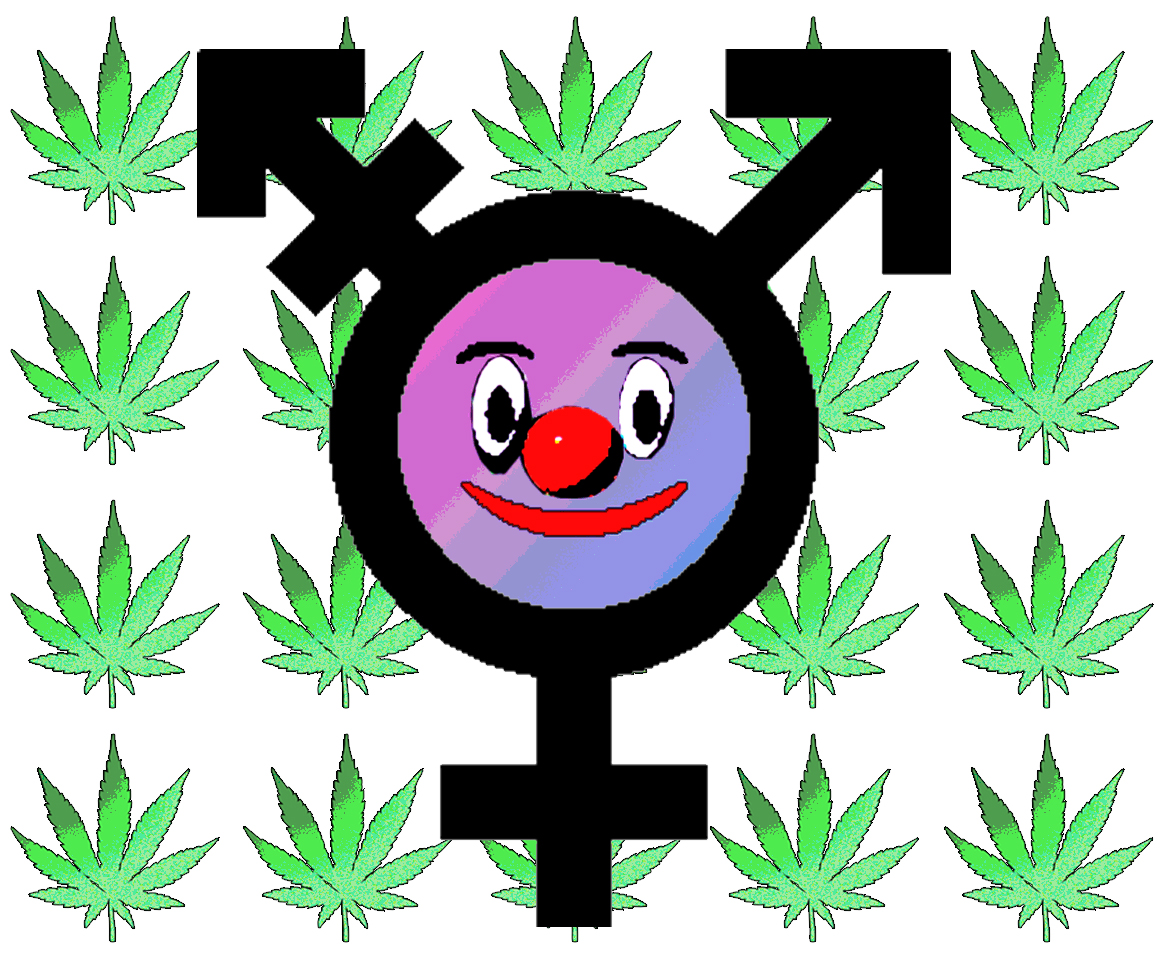
An Individualized Perspective
I talked about this with Buck Angel, a trans man, porn icon, activist, and cannabis entrepreneur. He’s been sober for 30 years, though he does not consider his cannabis consumption to be substance use. For him, it’s just as much medicinal as it is recreational. When he started smoking weed, he preferred indica-dominant strains to help him sleep.
“I started using indicas about five years ago, and as my cannabis usage progressed, I started using and trying all types of strains,” said Angel. “At this point, I would say that I can smoke anything to go to sleep! Like when someone says it’s a sativa, it doesn't necessarily keep me awake, or keep me feeling some type of way. And I don't know if [that’s] hormonal. I haven’t changed any of my hormones. But what I have changed is my consumption of cannabis.”
Angel tells me that in the 22 years since he started transitioning, he’s seen that hormones can have all kinds of effects on the body. For example, some trans men tell him that testosterone changes their sexuality, a trend that’s also been observed with estrogen in transgender women. But he’s not inclined to believe that changes with cannabis can be chalked up just to hormones.
“All of our experiences are different, and we really need to start talking about individuality,” said Angel. “Everyone’s cannabis usage — whether it’s what they’re using it for, how they're using it, how it affects you — we’re all going to have different experiences. And for us to think that all of our transitions are going to be the same, or even our usages of cannabis, just seems to be not living in reality on some level.”
Hormones and weed are both characterized by their highly individualized effects. Angel feels like a lot of the ways that both are talked about can be unduly generalized. Trans people aren't a monolith. We all have unique medical needs, material circumstances, and life experiences. And as our bodies change, and our use of weed changes, why wouldn't the effects of that same weed change as well?
Like Zavos, Angel believes that the best approach for trans people using cannabis medicinally is to treat the marijuana as one part of a larger portrait of their bodies and their needs. To that effect, he’s started what he calls a queer cannabis company, Pride Wellness, to support medicinal cannabis usage as an alternative to hard drugs and pharmaceuticals in the queer community. Angel doesn't consider cannabis to be a cure-all, but he recognizes that there’s a lot of positive effects to informed, individualized cannabis use.
That perspective was shared by everyone I talked to while reporting this article. Even those who don't enjoy cannabis still recognize its impact for other members of the queer and trans community. Whatever the character of its effects, it’s clear that there’s an important place for cannabis in many trans people’s lives and identities.
“Cannabis has definitely been a useful tool for me at several aspects of my transition, and alleviated my distorted sense of self when existing in my body was excruciating,” said Camilo. “I'll always view it fondly in my heart.”
Follow Alex Verman on Twitter


